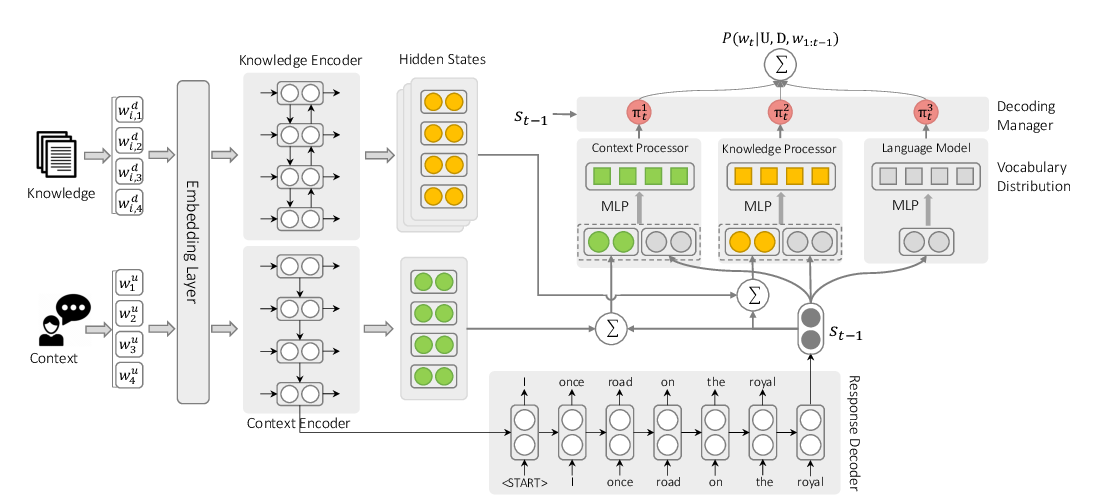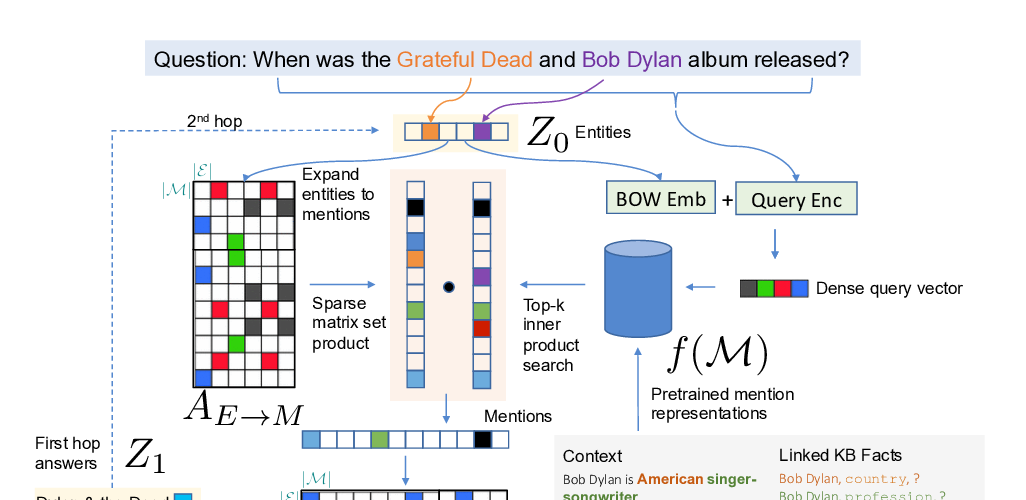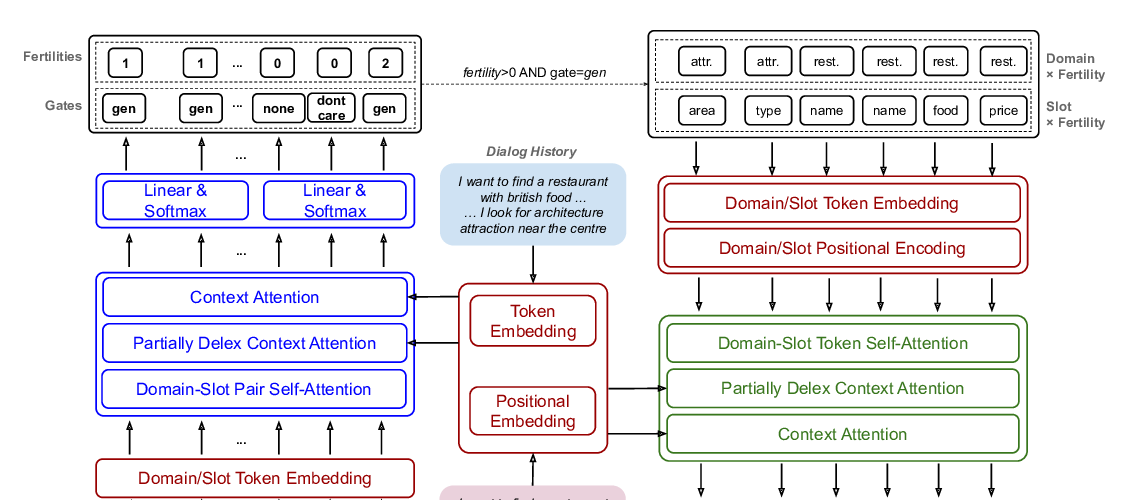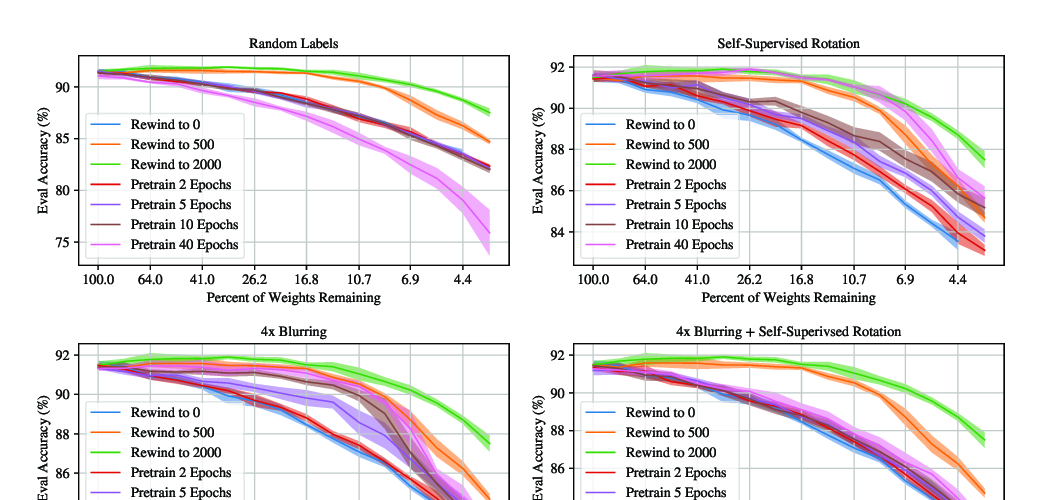Abstract:
Knowledge-grounded dialogue is a task of generating an informative response based on both discourse context and external knowledge. As we focus on better modeling the knowledge selection in the multi-turn knowledge-grounded dialogue, we propose a sequential latent variable model as the first approach to this matter. The model named sequential knowledge transformer (SKT) can keep track of the prior and posterior distribution over knowledge; as a result, it can not only reduce the ambiguity caused from the diversity in knowledge selection of conversation but also better leverage the response information for proper choice of knowledge. Our experimental results show that the proposed model improves the knowledge selection accuracy and subsequently the performance of utterance generation. We achieve the new state-of-the-art performance on Wizard of Wikipedia (Dinan et al., 2019) as one of the most large-scale and challenging benchmarks. We further validate the effectiveness of our model over existing conversation methods in another knowledge-based dialogue Holl-E dataset (Moghe et al., 2018).



